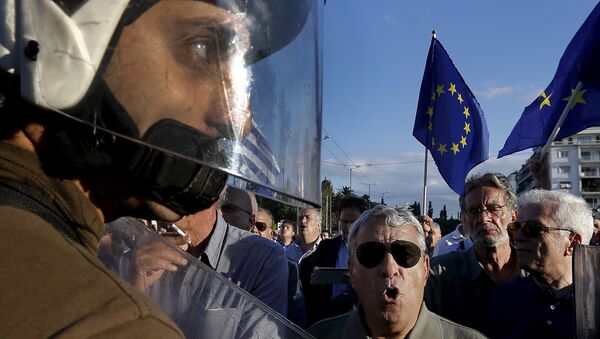Prime Minister Alexis Tsipras announced his resignation earlier this month to pave the way for early elections in a bid to secure popular support for his stance on the new 86-billion-euro ($96 billion at the current exchange rate) bailout package with the country's creditors. The vote is due to take place on September 20.
"People are very much furious. It is the dominating feeling in the society right now. People are furious with everyone. The domination of fury does not create prerequisites for a systematic reaction of people, as the emotional constituent is extremely crucial and you do not know until the very end how voters will react," Mavros said.
Mavros explained that people were still angry with past governments, such as the New Democracy and PASOK, for bringing austerity to the country, as "it is too recent for people to start forgiving it."
In a July nation-wide referendum, the majority of Greeks voted against a lender-proposed bailout plan, which contained strict austerity measures.
Comparing the current electoral situation in Greece with the one several years ago Mavros noted that there was a tendency for people to make their final decision practically on the eve of elections or just several days ahead.
"We have statistics showing that at the referendum held on July 5 15-20 percent of the people came to a decision just on Friday before the Sunday vote," Mavros said.
According to a Friday survey conducted by ProRata on behalf of Efimerida ton Syntakton ("Newspaper of Editors") newspaper, Syriza was leading New Democracy at 23 percent versus 19.5 percent, with at least 25.5 percent of those polled undecided.




